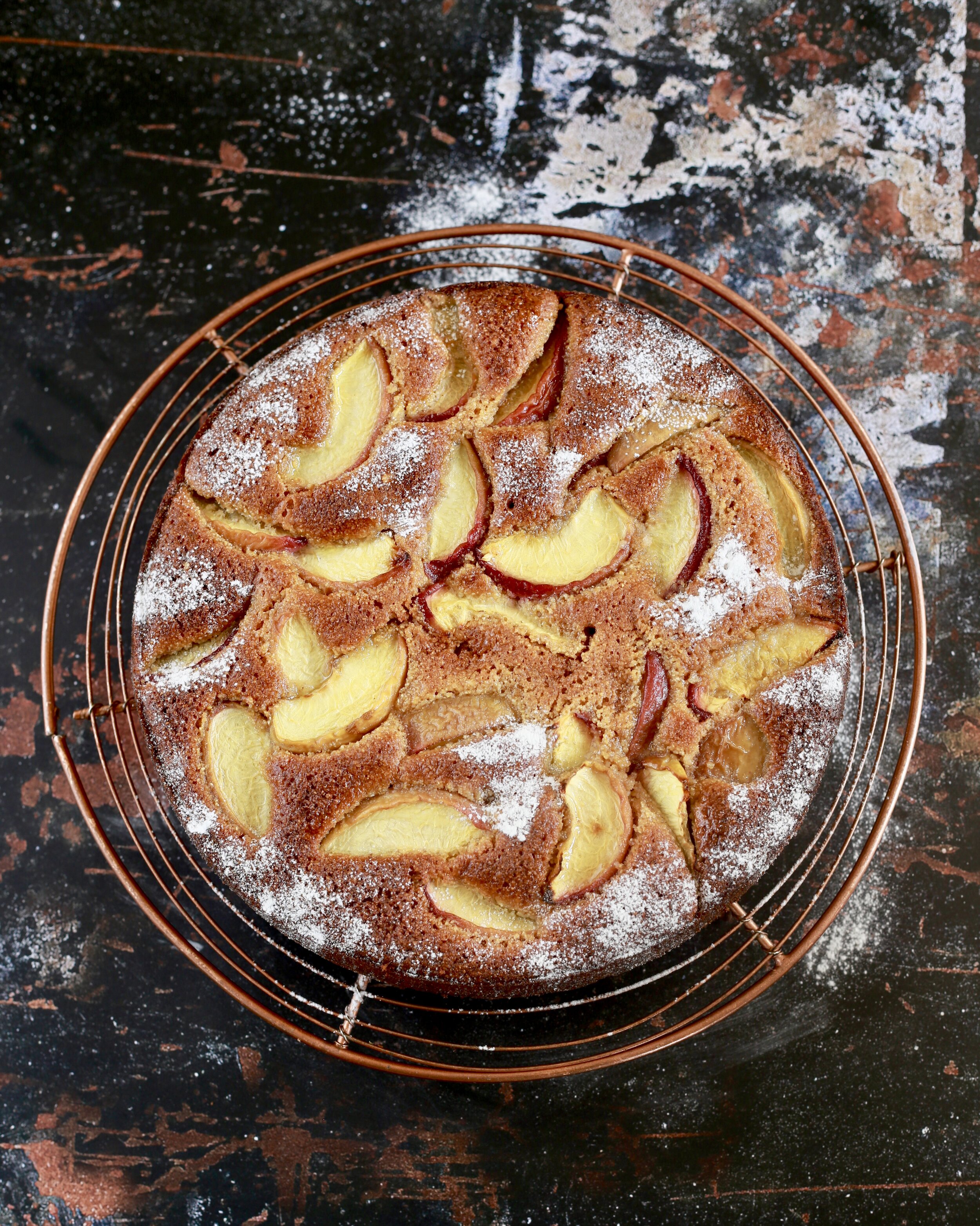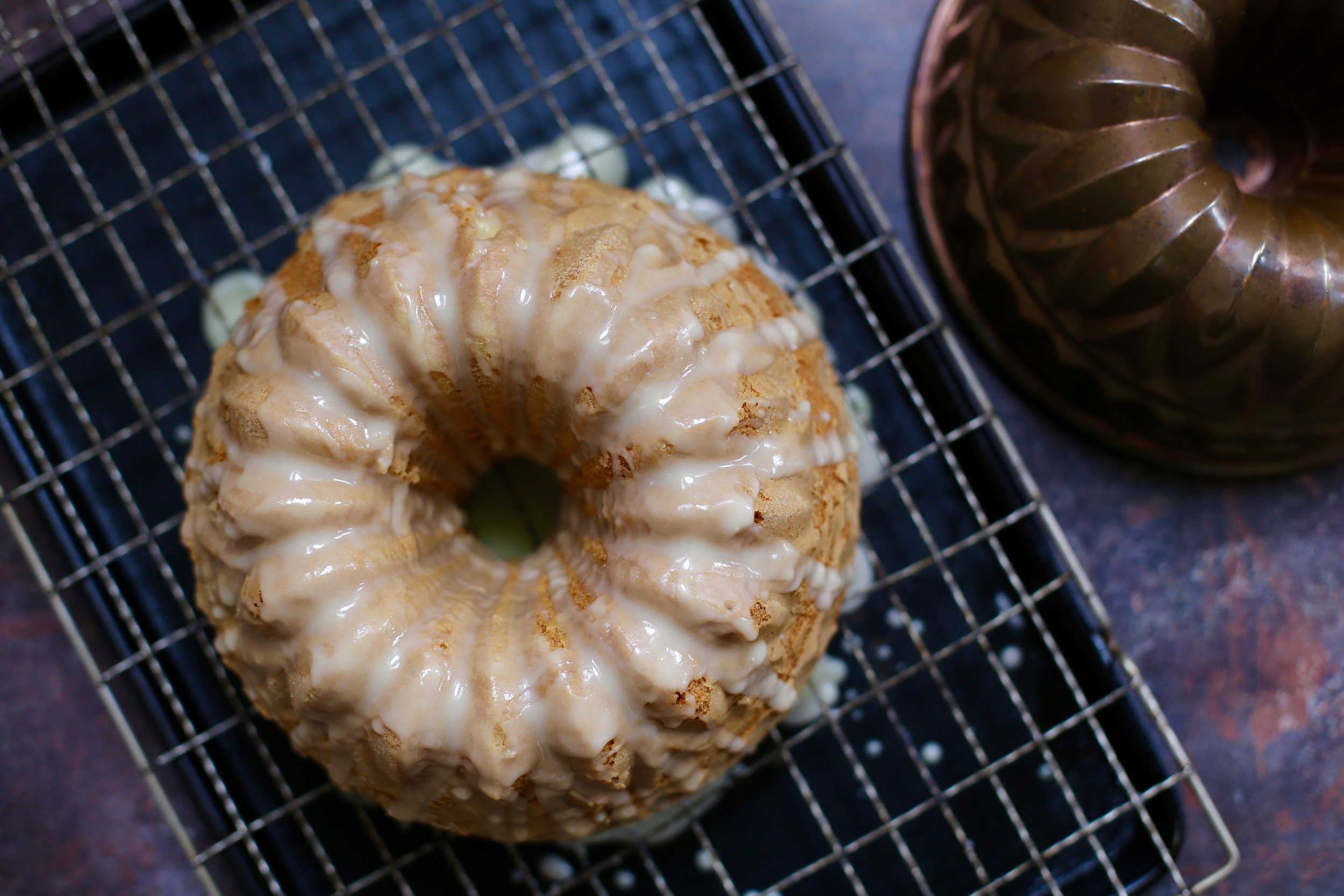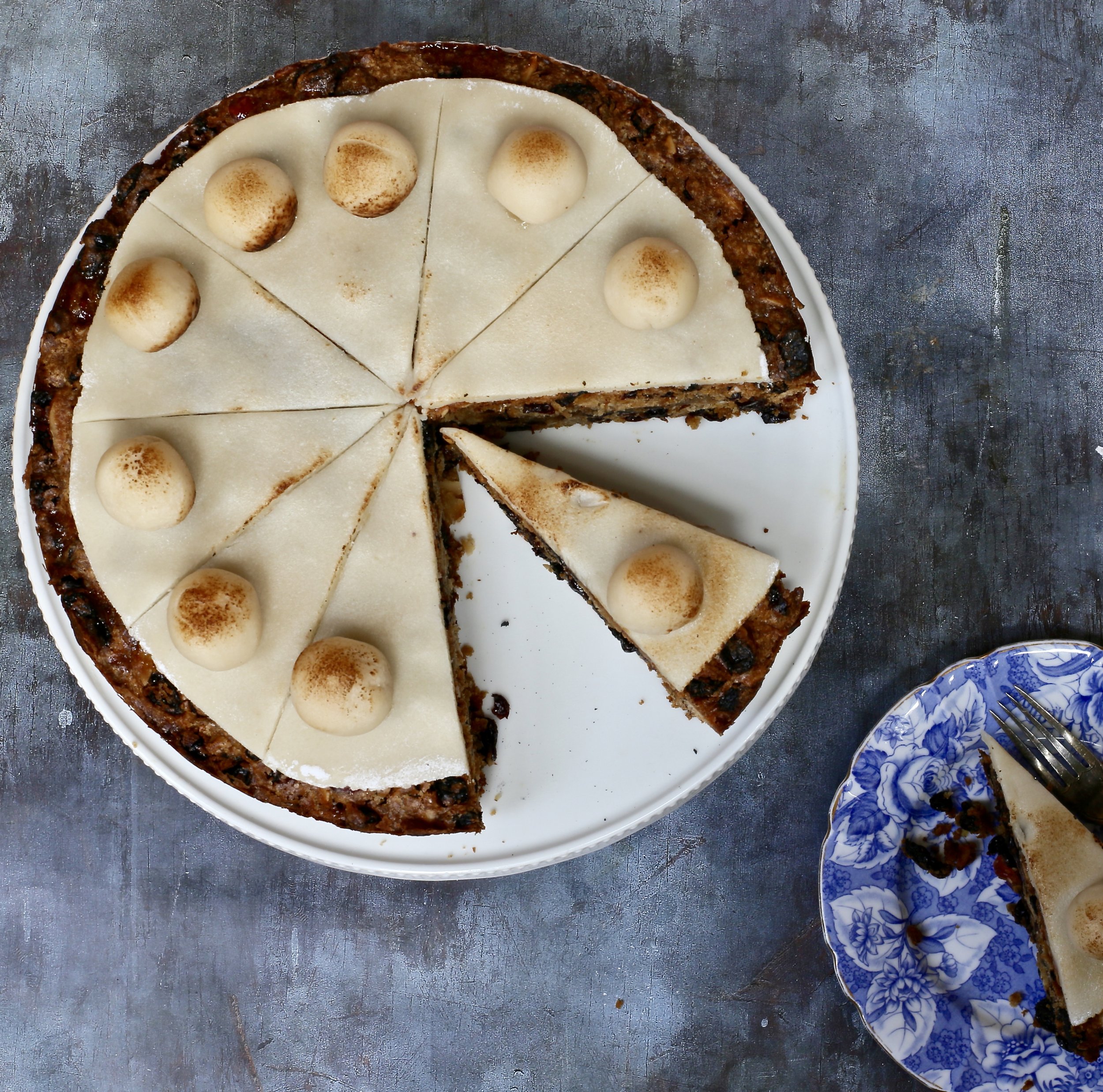LEMON CAKE
Makes 12 slices
26 x 9cm loaf tin
butter to grease
5 free-range medium eggs
300g caster sugar
150ml cream
finely grated zest of 3 lemons
25ml dark rum (optional)
pinch of salt
80g unsalted butter (or if using salted don't add pinch of salt)
240g plain flour
1/2 tsp baking powder
for the glaze
50g apricot jam, warmed
finely grated zest of 1 lemon, plus 3 Tbsp juice
150g icing sugar
Method
To prepare the cake - Preheat the oven to 180C. Lightly grease the loaf tin and line with greaseproof paper. In a large bowl, whisk together the eggs, sugar, cream, lemon zest, rum (if using), salt and melted butter. Sift the flour and baking powder together, then whisk into the egg mixture until smooth.
To bake the cake - Spoon the mixture itno the loaf tin and gently level the surface. Bake for 50 minutes - 1 hour, turning the tin around halfway through cooking. To test the cake, insert a small knife or skewer into the middle - if it comes out clean, teh cake is cooked. Turn out onto a wire rack and leave to cool for 10 minutes.
To glaze - Lighlty brush the cake all over with warm jam. Leave for 5 minutes. Mix the lemon zest and juice with the icing sugar in small pan and warm over a low heat until smooth. Brush the lemon glaze evenly over the top and sides of the cake and leave for a few minutes to set.
Place the cake on a baking tray in the oven, turn off the heat adn leave for 3-5 minutes to dry the glaze - it will become translucent. Allow to cool before slicing.
RAYMONDS TOP TIPS
- Leave some paper overhanging the sides when you line the tin; this will enable you to lift out the cake by the paper, making it easy to de-mould.
- Do not leave your cake to cool in the tin, as this would prevent the steam from escaping, making your cake heavier.
- Brushing the cake with jam creates a barrier so the lemon glaze is not absorbed.
- If the glaze is too hot it will re-crystallise, losing its shine and crispness.
- The lemon glaze must be even and thin; if it is too thick it will run in the oven.


